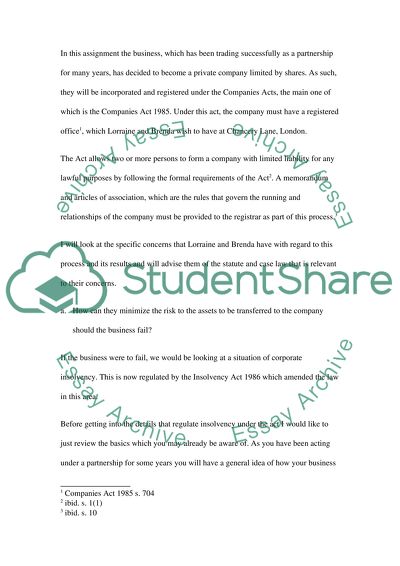Cite this document
(“Business and Corporate Law Case Study Example | Topics and Well Written Essays - 3500 words”, n.d.)
Business and Corporate Law Case Study Example | Topics and Well Written Essays - 3500 words. Retrieved from https://studentshare.org/law/1510054-business-and-corporate-law
Business and Corporate Law Case Study Example | Topics and Well Written Essays - 3500 words. Retrieved from https://studentshare.org/law/1510054-business-and-corporate-law
(Business and Corporate Law Case Study Example | Topics and Well Written Essays - 3500 Words)
Business and Corporate Law Case Study Example | Topics and Well Written Essays - 3500 Words. https://studentshare.org/law/1510054-business-and-corporate-law.
Business and Corporate Law Case Study Example | Topics and Well Written Essays - 3500 Words. https://studentshare.org/law/1510054-business-and-corporate-law.
“Business and Corporate Law Case Study Example | Topics and Well Written Essays - 3500 Words”, n.d. https://studentshare.org/law/1510054-business-and-corporate-law.


